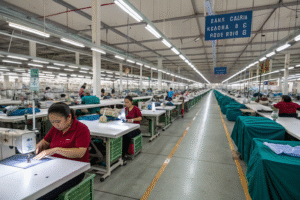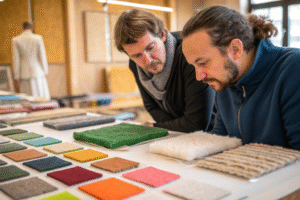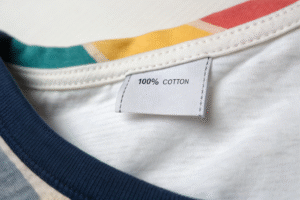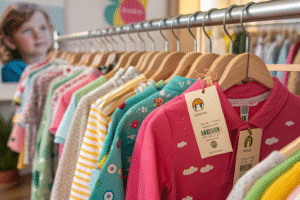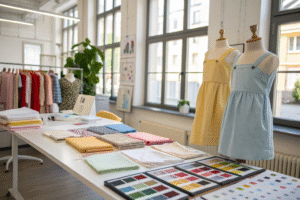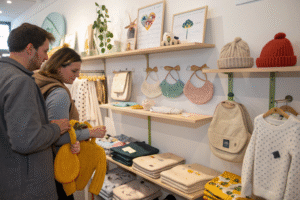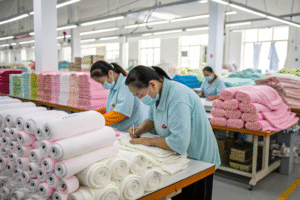In the fast-paced world of babywear, waiting months to launch the next collection can mean missing the moment entirely. Trend cycles are shorter. Seasons shift faster. And parents expect fresh, functional designs—now.
A truly responsive babywear factory is one that tracks market trends in real time, supports flexible production runs, adapts with smart technologies, and communicates clearly throughout sampling and delivery.
Let’s explore what sets trend-ready factories apart from traditional suppliers.
How Real-Time Trend Tracking Enhances Factory Agility?
Babywear design is increasingly trend-sensitive. From muted color palettes to whimsical motifs, being late on style can cost you shelf space and sales.
Factories that stay updated on real-time market trends—via retail analytics, Instagram, or client input—can align faster with brand needs and produce on-point collections quickly.

What trend-aware factories do differently:
- Monitor trending babywear colors and prints (e.g., sage green, sunflowers, rainbows)
- Understand viral silhouettes (two-way zipper rompers, waffle sets)
- Anticipate seasonal events (back-to-school, “first holiday” capsules)
- Suggest design ideas based on market shifts
| Trend Signal Source | Factory Response Example |
|---|---|
| Instagram influencer content | Proposes muted neutral ribbed cotton sets |
| Amazon best-seller updates | Offers baby boy zipper footies with fresh prints |
| Seasonal color reports | Sources new Pantone-approved fabric dyes |
Factories that “listen to the market” help brands design faster and smarter.
Why Flexible MOQs and Lead Times Matter for Trend-Driven Brands?
It’s impossible to predict which new style will go viral—and ordering 3,000 units of the wrong romper is a risk most babywear brands can’t afford.
Responsive factories support low minimum order quantities (MOQs), small test batches, and shorter lead times, so brands can move with the market—not behind it.
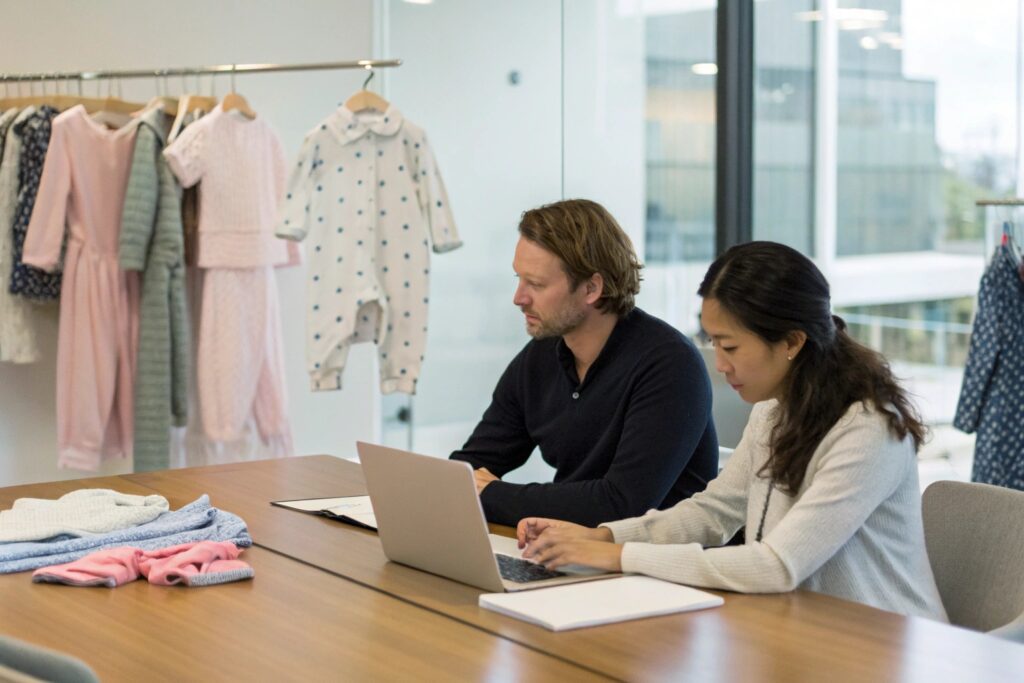
Why flexibility matters in trend-based manufacturing:
- Launch limited drops to test new ideas
- Reorder quickly when styles take off
- Switch size ratios mid-season based on sell-through
- Minimize overstock risk with small runs
| Production Flexibility | Trend Response Advantage |
|---|---|
| 200–300 pcs MOQ | Perfect for capsule collections or trials |
| 30–45 day lead times | Aligns with seasonal launch cycles |
| Colorway flexibility | Try new color trends with low commitment |
A factory that says yes to agility gives your brand the edge in fast-shifting markets.
What Technologies Help Factories Adapt to Babywear Shifts?
Responsiveness isn’t just about speed—it’s about efficiency powered by technology. Factories that embrace digital tools can cut sampling time, reduce production error, and support faster product delivery.
Responsive factories use integrated systems like CAD for faster prototyping, digital printing for low-quantity variation, and real-time order tracking for clients.
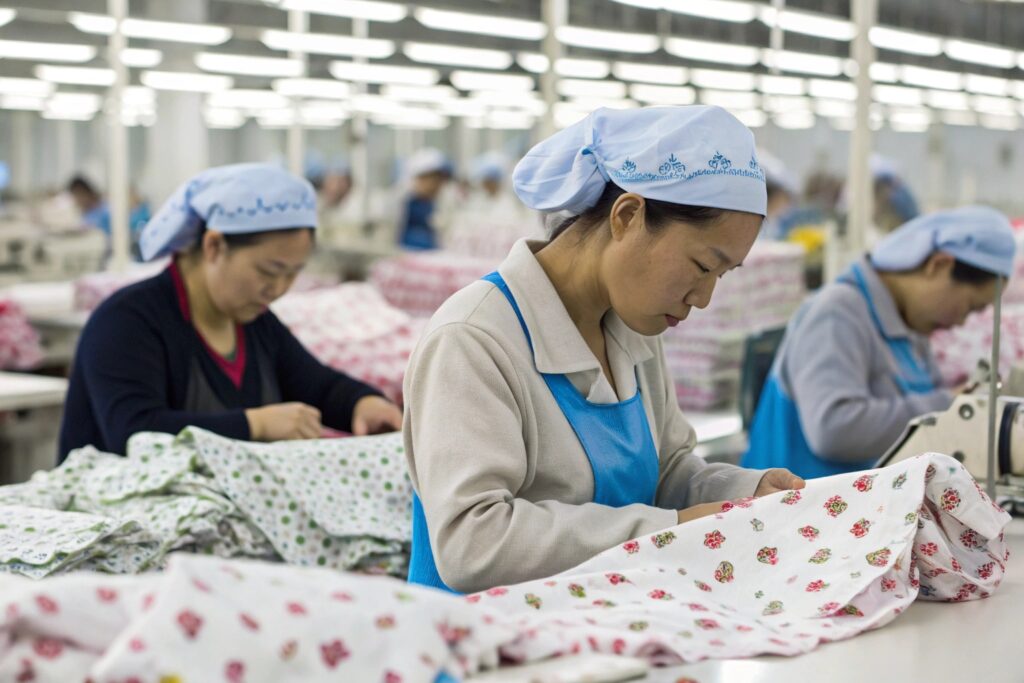
Tech-enabled capabilities to look for:
| Factory Technology | How It Supports Responsiveness |
|---|---|
| CAD pattern design | Accelerates tech pack changes and grading |
| Digital fabric printing | Ideal for testing small-run print designs |
| PDM/ERP systems | Keeps orders, specs, and timelines organized |
| Barcode tracking | Real-time visibility on production status |
| Virtual sampling support | Faster approvals without physical delays |
These technologies let factories adapt faster, communicate better, and deliver quicker.
How Communication and Sampling Speed Impact Responsiveness?
You can’t move fast if your factory takes two weeks to answer one email.
Clear communication and fast sampling are essential pillars of a responsive factory—ensuring changes happen quickly, problems are solved early, and launches stay on track.
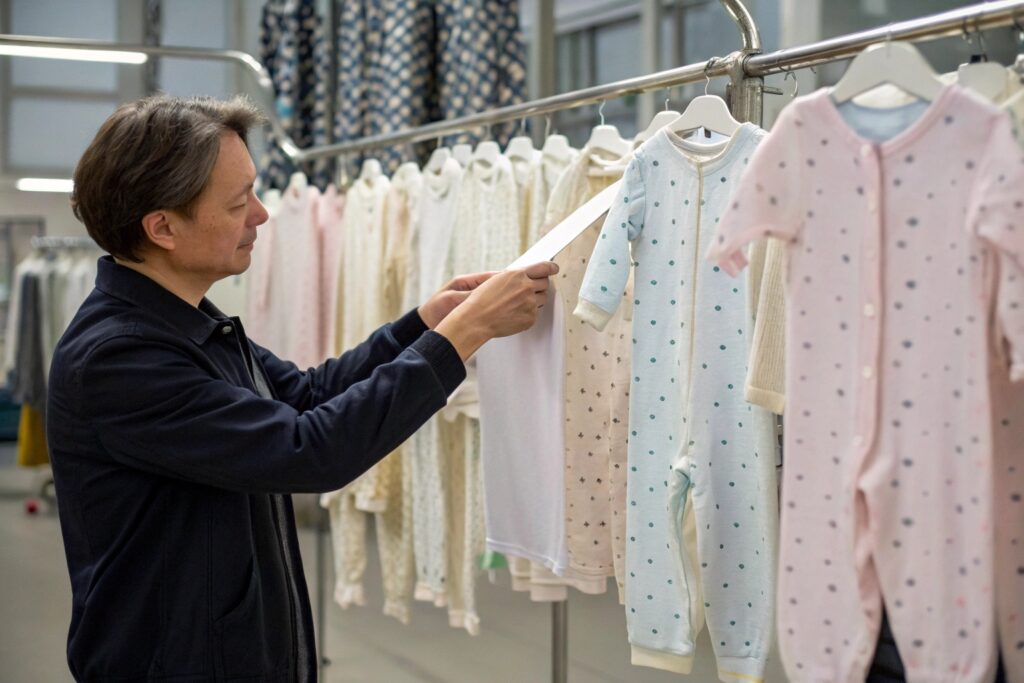
What communication practices matter most?
- Dedicated account managers who understand your brand
- Clear timelines for sampling and revisions
- Use of WhatsApp, WeChat, or Slack for quick updates
- Photo/video sampling approvals to reduce delays
- Real-time production updates to avoid surprises
| Factory Behavior | Result for Babywear Brand |
|---|---|
| Replies within 24 hours | Faster decisions and shorter lead time |
| Sends sample photos/videos | Quicker approvals from remote clients |
| Shares production status | Fewer delays and better buyer confidence |
In trend-based babywear, slow response is missed opportunity. The right factory moves with you, not after you.
Conclusion
In a babywear market where trends turn quickly and parents expect fresh collections year-round, your factory must be more than a producer—it must be a partner. A responsive factory brings you speed, flexibility, trend alignment, and clear communication. In 2025 and beyond, the brands that win will be powered by suppliers who can keep up—and help them stand out.


